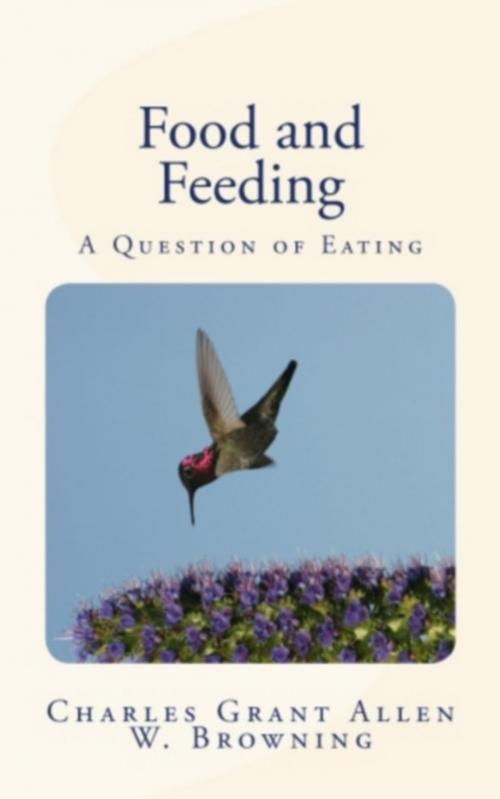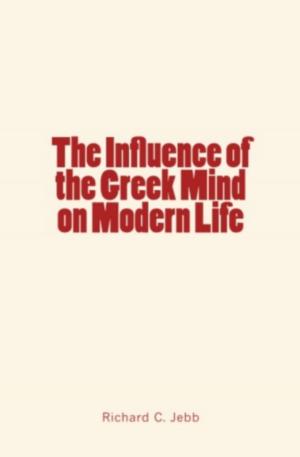| Author: | Charles Grant Allen, William Browning | ISBN: | 9782366595697 |
| Publisher: | Literature and Knowledge Publishing | Publication: | April 2, 2018 |
| Imprint: | Literature and Knowledge Publishing | Language: | English |
| Author: | Charles Grant Allen, William Browning |
| ISBN: | 9782366595697 |
| Publisher: | Literature and Knowledge Publishing |
| Publication: | April 2, 2018 |
| Imprint: | Literature and Knowledge Publishing |
| Language: | English |
When a man and a bear meet together casually in an American forest, it makes a great deal of difference, to the two parties concerned at least, whether the bear eats the man or the man eats the bear. We haven't the slightest difficulty in deciding afterward which of the two, in each particular case, has been the eater, and which the eaten. Here, we say, is the grizzly that ate the man; or, here is the man that smoked and dined off the hams of the grizzly. Basing our opinion upon such familiar and well-known instances, we are apt to take it for granted far too readily that between eating and being eaten, between the active and the passive voice of the verb edo, there exists necessarily a profound and impassable native antithesis. To swallow an oyster is, in our own personal histories, so very different a thing from being swallowed by a shark that we can hardly realize at first the underlying fundamental identity of eating with mere coalescence. And yet, at the very outset of the art of feeding, when the nascent animal first began to indulge in this very essential animal practice, one may fairly say that no practical difference as yet existed between the creature that ate and the creature that was eaten. After the man and the bear had finished their little meal, if one may be frankly metaphorical, it was impossible to decide whether the remaining being was the man or the bear, or which of the two had swallowed the other... The particular point to which I wish to draw attention here, however, is this: that even the very simplest and most primitive animals do discriminate somehow between what is eatable and what isn't... ...The healthy popular belief, still surviving in spite of cookery, that our likes and dislikes are the best guide to what is good for us, finds its justification in this fact, that whatever is relished will prove on the average wholesome, and whatever rouses disgust will prove on the whole indigestible. Nothing can be more wrong, for example, than to make children eat fat when they don't want it. A healthy child likes fat, and eats as much of it as he can get. If a child shows signs of disgust at fat, that proves that it is of a bilious temperament, and it ought never to be forced into eating it against its will...
When a man and a bear meet together casually in an American forest, it makes a great deal of difference, to the two parties concerned at least, whether the bear eats the man or the man eats the bear. We haven't the slightest difficulty in deciding afterward which of the two, in each particular case, has been the eater, and which the eaten. Here, we say, is the grizzly that ate the man; or, here is the man that smoked and dined off the hams of the grizzly. Basing our opinion upon such familiar and well-known instances, we are apt to take it for granted far too readily that between eating and being eaten, between the active and the passive voice of the verb edo, there exists necessarily a profound and impassable native antithesis. To swallow an oyster is, in our own personal histories, so very different a thing from being swallowed by a shark that we can hardly realize at first the underlying fundamental identity of eating with mere coalescence. And yet, at the very outset of the art of feeding, when the nascent animal first began to indulge in this very essential animal practice, one may fairly say that no practical difference as yet existed between the creature that ate and the creature that was eaten. After the man and the bear had finished their little meal, if one may be frankly metaphorical, it was impossible to decide whether the remaining being was the man or the bear, or which of the two had swallowed the other... The particular point to which I wish to draw attention here, however, is this: that even the very simplest and most primitive animals do discriminate somehow between what is eatable and what isn't... ...The healthy popular belief, still surviving in spite of cookery, that our likes and dislikes are the best guide to what is good for us, finds its justification in this fact, that whatever is relished will prove on the average wholesome, and whatever rouses disgust will prove on the whole indigestible. Nothing can be more wrong, for example, than to make children eat fat when they don't want it. A healthy child likes fat, and eats as much of it as he can get. If a child shows signs of disgust at fat, that proves that it is of a bilious temperament, and it ought never to be forced into eating it against its will...















